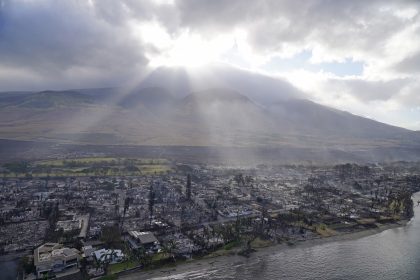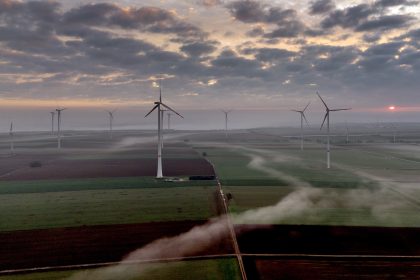Climate Questions: How Much Has the Climate Changed Already?

Relentless drought in China, East Africa, the U.S. West and northern Mexico, devastating floods in Pakistan and Kentucky, scorching heat waves in Europe and the Pacific Northwest, destructive cyclones in southern Africa and intense hurricanes in the U.S. and Central America make up just some of the recent extreme weather events that scientists have long predicted would be more intense with a warming climate.
“With just over one degree of warming since pre-industrial times, we are already seeing more extreme weather patterns,” said Elizabeth Robinson, director of the Grantham Research Institute in London.
Scientists have been tracking precisely how much the climate has already changed due to human activity. Temperatures around the world have been inching upwards.
The average global temperature today, which tends to be compared to estimates for the pre-industrial era that kickstarted the mass burning of fossil fuels, has shot up between 0.9 and 1.2 degrees Celsius (1.6 to 2 degrees Fahrenheit) since 1850, in large part due to human activity, according to estimates in the most recent report by the Intergovernmental Panel on Climate Change. Most of that warming has happened from 1975 onwards, at a rate of 0.15 Celsius (0.27 Fahrenheit) to 0.2 Celsius (0.36 Fahrenheit) per decade.
Most people are living in areas that have heated up more than the global average, “partly that is urbanization — people move into cities, which are urban heat islands — and partly populations growing,” Robinson said. Urban areas, packed with plenty of heat-absorbing infrastructure like roads and buildings and less cooling tree cover, become “islands” of warmer weather.
Sea levels, which have swelled due to both warming, expanding oceans and the melting of ice over land, have also been jumping up more rapidly. In the twentieth century, seas were rising by about 1.4 millimeters (0.06 inches) a year, but that’s doubled to 3.6 millimeters a year (0.14 inches) in the past fifteen years, data suggests. Seas have risen by about 21 to 24 centimeters (8 to 9 inches) so far since 1880 on average, according to estimates, with the IPCC suggesting this will likely be up to 43 to 84 centimeters (17 to 33 inches) by 2100.
While the climate and global temperatures have fluctuated throughout the Earth’s history, it is the rate of change that is most alarming to researchers. Fossil fuels — made up of ancient decomposing plants and animals deep in the earth — have been dug up at extraordinary rates. Scientists are now starting to pinpoint “details about rates and magnitudes and timing of changes” as well as the varying impact on regions, said Brown University climate scientist Kim Cobb.
With the planet already facing the effects of climate change, adapting to hazards is one major way humans can limit the damage. Weather-related disaster deaths are generally trending lower globally as forecasts, preparedness and resilience improves, scientists say.
“The extent to which people are harmed by an extreme weather event is strongly influenced by government policies,” Robinson said, but added that “there are limits to adaptation.”
___
AP Science writer Seth Borenstein contributed to this report.

























